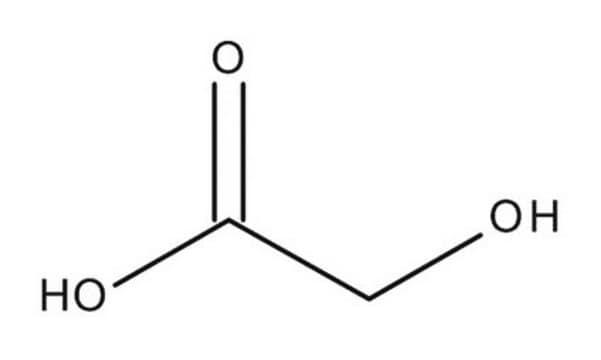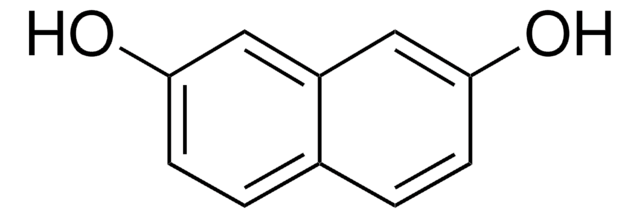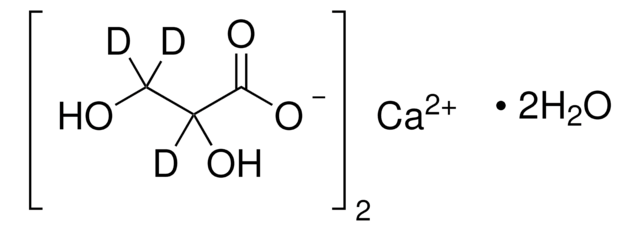G8284
Glycolic acid
BioXtra, ≥98.0% (titration)
Synonym(s):
Hydroxyacetic acid
About This Item
Recommended Products
product line
BioXtra
Quality Level
Assay
≥98.0% (titration)
form
powder or crystals
impurities
≤0.0005% Phosphorus (P)
≤0.1% Insoluble matter
ign. residue
≤0.1%
pH
2 (25 °C, 50 g/L)
mp
75-80 °C (lit.)
solubility
H2O: 1 M, clear, colorless
anion traces
chloride (Cl-): ≤0.05%
sulfate (SO42-): ≤0.05%
cation traces
Al: ≤0.0005%
Ca: ≤0.0005%
Cu: ≤0.0005%
Fe: ≤0.0005%
K: ≤0.005%
Mg: ≤0.0005%
NH4+: ≤0.05%
Na: ≤0.005%
Pb: ≤0.001%
Zn: ≤0.0005%
SMILES string
OCC(O)=O
InChI
1S/C2H4O3/c3-1-2(4)5/h3H,1H2,(H,4,5)
InChI key
AEMRFAOFKBGASW-UHFFFAOYSA-N
Looking for similar products? Visit Product Comparison Guide
Signal Word
Danger
Hazard Statements
Precautionary Statements
Hazard Classifications
Acute Tox. 4 Inhalation - Eye Dam. 1 - Skin Corr. 1B
Storage Class Code
8A - Combustible corrosive hazardous materials
WGK
WGK 1
Flash Point(F)
>572.0 °F - (decomposition)
Flash Point(C)
> 300 °C - (decomposition)
Personal Protective Equipment
Choose from one of the most recent versions:
Already Own This Product?
Find documentation for the products that you have recently purchased in the Document Library.
Customers Also Viewed
Our team of scientists has experience in all areas of research including Life Science, Material Science, Chemical Synthesis, Chromatography, Analytical and many others.
Contact Technical Service











